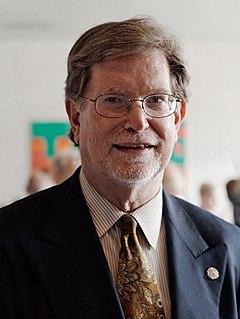A Quote by Olaf Stapledon
All this long human story, most passionate and tragic in the living, was but an unimportant, a seemingly barren and negligible effort, lasting only for a few moments in the life of the galaxy. When it was over, the host of the planetary systems still lived on, with here and there a casualty, and here and there among the stars a new planetary birth, and here and there a fresh disaster.
Related Quotes
We really just didn't realize the diversity of planetary types in our solar system. Pluto looked like a misfit because it was the only one we saw. And just as a Chihuahua is still a dog, these ice dwarfs are still planetary bodies. They're large enough to make themselves round by self gravity, and they surely pass the test of planethood.
'The anthropocene' refers to the way we live now, in a highly globalized world, characterized by a large human population and powerful technologies that allow for "action at a distance" that aggregate apparently negligible acts into powerful forces that are transforming fundamental planetary systems. In this sense 'the anthropocene' refers to a period in which nature as an independent autonomous domain comes to an end or is under serious threat.
In the end, people don't view their life as merely the average of all its moments-which, after all, is mostly nothing much plus some sleep. For human beings, life is meaningful because it is a story. A story has a sense of a whole, and its arc is determined by the significant moments, the ones where something happens. Measurements of people's minute-by-minute levels of pleasure and pain miss this fundamental aspect of human existence. A seemingly happy life maybe empty. A seemingly difficult life may be devoted to a great cause. We have purposes larger than ourselves.
...the debate among the scientists if over. There is no more debate. We face a planetary emergency. There is no more scientific debate among serious people who've looked at the science...Well, I guess in some quarters, there's still a debate over whether the moon landing was staged in a movie lot in Arizona, or whether the Earth is flat instead of round.
I think it's fantastically narcissistic to believe that in the entire universe, with all of the planetary systems that we've already discovered and the countless others that are out there, that we are the only forms of life. Now, the real question is not are there other forms of life out there, but are there other intelligent forms of life out there right now. Because the universe is not only really big but it's also really long. It's been around for a long time; it's going to be around for a long time.
... the only other place comparable to these marvelous nether regions, must surely be naked space itself, out far beyond atmosphere, between the stars, where sunlight has no grip upon the dust and rubbish of planetary air, where the blackness of space, the shining planets, comets, suns, and stars must really be closely akin to the world of life as it appears to the eyes of an awed human being, in the open ocean, one half mile down.







































